THE ELECTION ISSUE
On Tuesday, Nov. 8, the country heads to the polls to cast votes in the 2016 election. While the presidential race between Democratic nominee Hillary Clinton LAW ’73 and Republican nominee Donald Trump has captured the most headlines over the past year, this year’s election means much more than the White House alone. See the News’ full coverage below.
COVERAGE
National projections
The election on campus
Clinton’s early years helped mold her political career
“Hillary’s life is really a reflection of coming of age in the 1960s,” said Alan Schechter, a political science professor at Wellesley and former academic advisor to Hillary Clinton LAW ’73. “The key to understanding Hillary in term[s] of why she went to Yale and what she did after Yale is really key to understanding her whole [life].”
Interviews with multiple individuals who knew Clinton in her college and law school years revealed a passionate women who has long been devoted to bringing on positive social change. Her time as an undergraduate at Wellesley and her professional development in New Haven, provided Clinton with the ground to enact such change in her later roles.
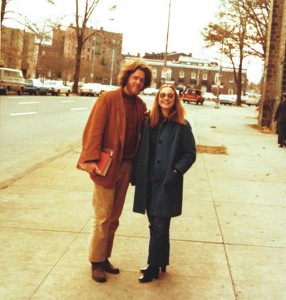
Candidates split on issues that impact college students
When they flock to the polls on Tuesday, most Yale students will cast their ballots without substantial consideration to how the presidencies of Democratic nominee Hillary Clinton LAW ’73 or Republican candidate Donald Trump might shape the future of American higher education. After all, the run-up to the 2016 election has attracted media attention more for sexual innuendos and ad hominem attacks than for concrete policy discussions. Amid debates over Clinton’s private email server and Trump’s border wall proposal, the two candidates’ plans for American higher education have gone largely unaddressed.
Still, just as on almost every other issue, Clinton and Trump have starkly divergent views on higher education, from the student loan crisis to the campus sexual assault.
Here, the News breaks down how Clinton and Trump differ on the major challenges facing American universities.
Election will direct country, make history
Today’s election marks the end of nearly 18 months of intense campaigning by Republicans and Democrats alike. A field of nearly 20 candidates was reduced to just two: Republican nominee Donald Trump and Democratic nominee Hillary Clinton LAW ’73. In the months following the primaries, an election laden with controversy has unfolded publicly, throwing the current divisiveness in modern American politics into sharp relief.
Much has been written of the mudslinging, drama and collective despair of the 2016 presidential election, but as two campaigns draw to a close, the historic nature of the 2016 election is increasingly evident to Yale professors and historians.
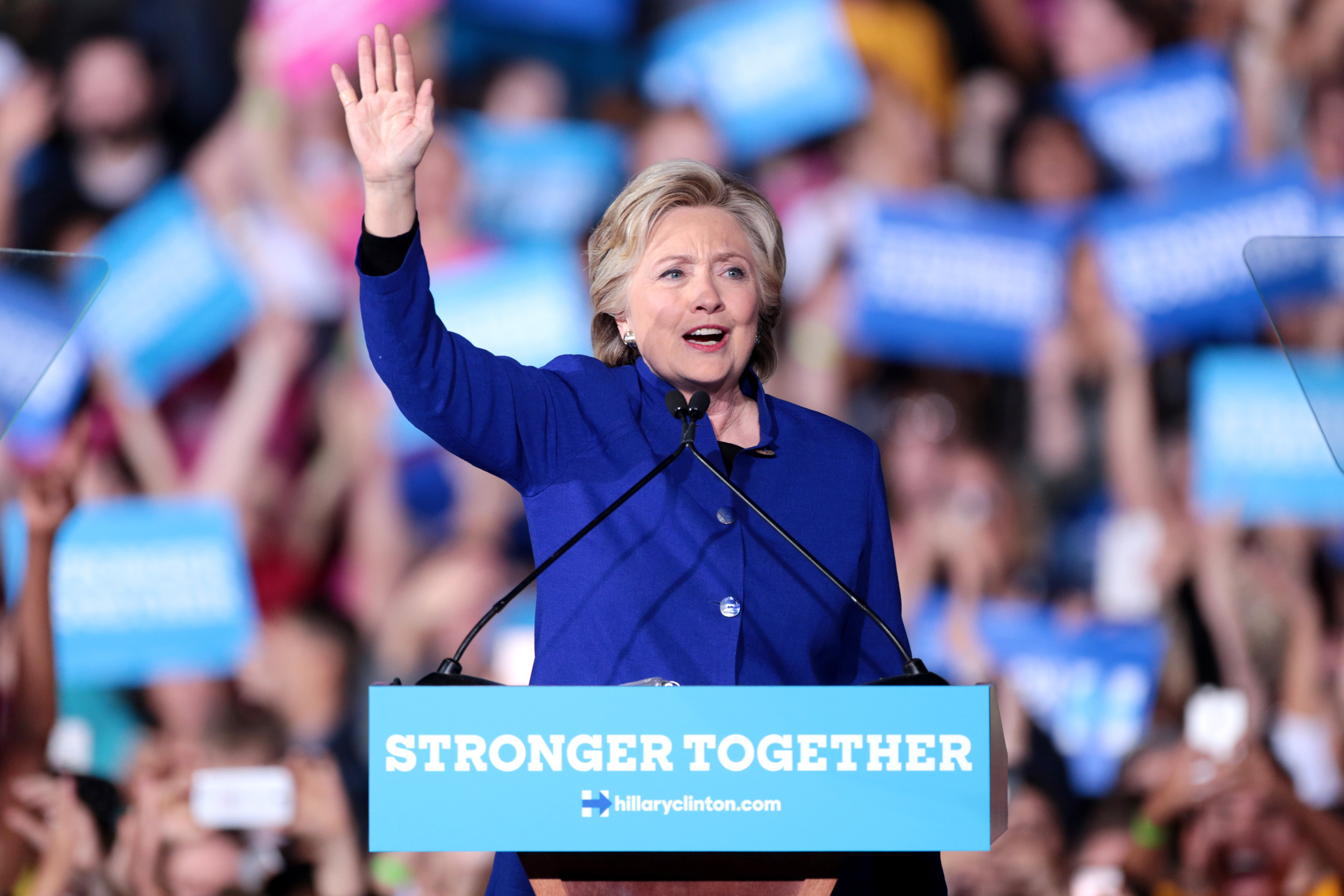
Blumenthal hopes for second term
Sen. Richard Blumenthal LAW ’73, D-Conn., is up for re-election for the first time, running against three-time State Rep. Dan Carter (R-2nd) in the Connecticut Senate election.
Though polling booths will be open until 8 p.m. on Tuesday, Blumenthal already has the race nearly locked up. Recent polls have the incumbent senator up by a large margin: FiveThirtyEight gave Blumenthal a 99.6 percent chance of winning and the most recent Emerson and Quinnipiac polls have the senior senator with a comfortable lead of 20-plus points. A second term would allow Blumenthal to build on the focus points of his first Senate term, which include consumer protection laws, tighter gun control guidelines as well as antitrust proposals.
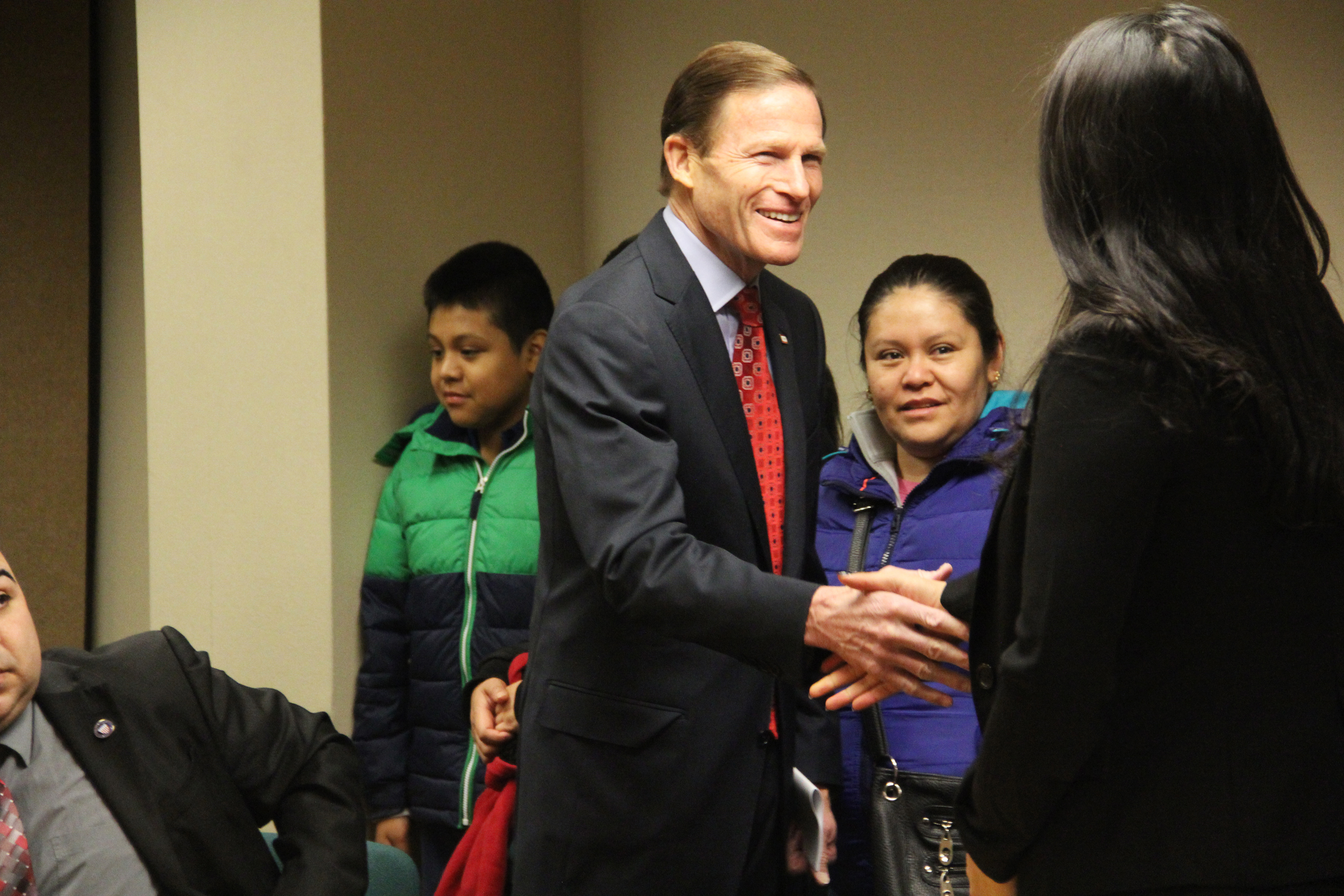
Veteran DeLauro up against newcomer
This election day, residents of Connecticut’s third congressional district — a region that includes New Haven, Middletown and Stratford — will have the choice of voting for one of two candidates: incumbent Rep. Rosa DeLauro, a Democrat who has held the seat since 1991, and Angel Cadena, a Republican who has never before held elected office.
In an interview with the News, DeLauro highlighted her past achievements and hopes for another term in office. She said issues such as college affordability, employment opportunities, equal pay for equal work, child care affordability and wage stagnation continue to persist in the third district, and that she hopes to continue advocating for her constituents through a fourteenth term.
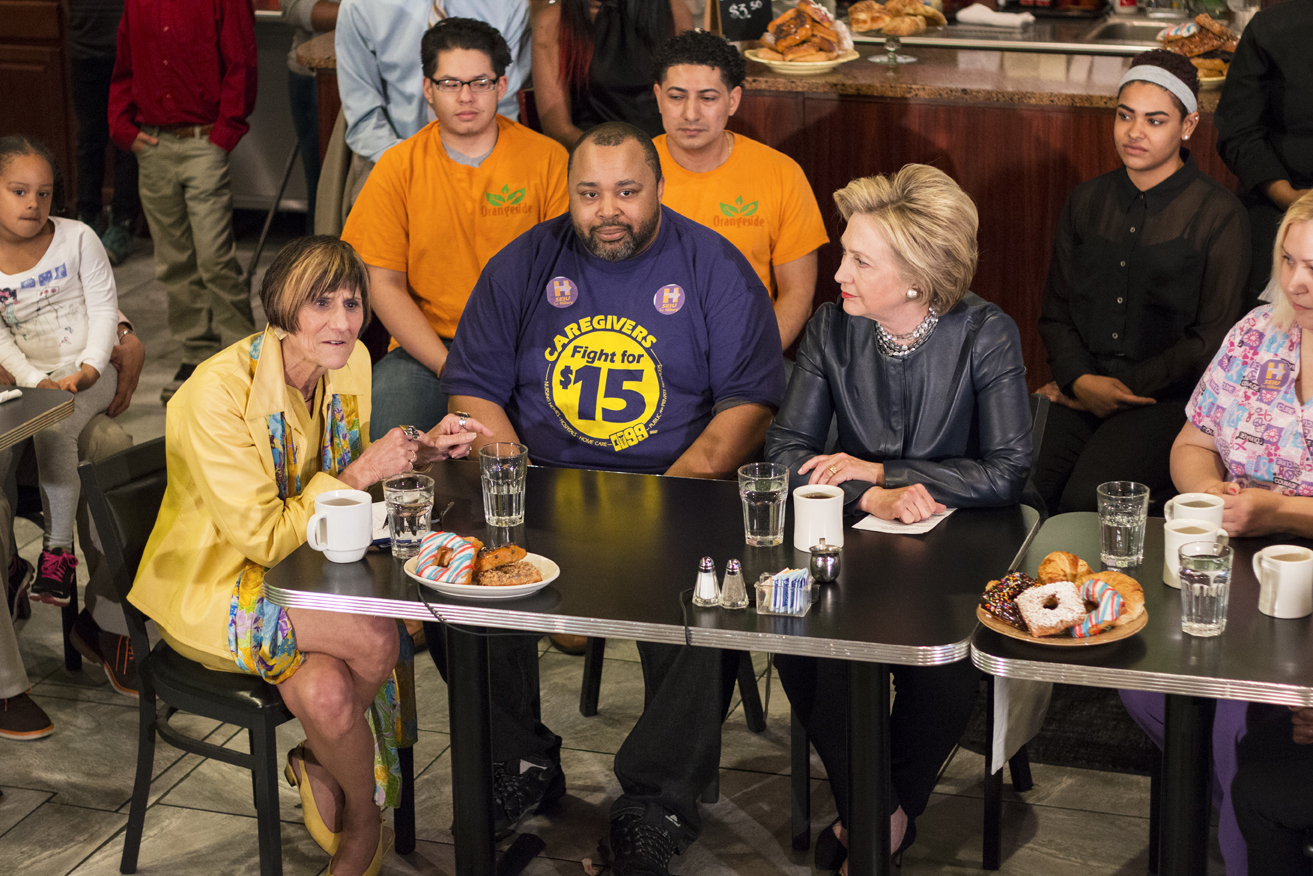
Yale affiliates lead in contributions to Democrats
This election cycle, Yale ranked 15th among American universities in total political donations, with University affiliates contributing $561,585 to candidates, parties and outside spending groups.
However, of the 20 universities who spent most on political contributions, Yale led in the percentage of direct donations to Democratic campaigns: 97.8 percent of Yale donations to candidates and parties were made to Democratic committees, while only 1.9 percent were made to the Republican Party and associated candidates.
Yale lobbies for financial aid support, immigration reform
In an email to the News, University Associate Vice President for Federal and State Relations Richard Jacob highlighted Yale’s lobbying priorities, including the funding of financial aid programs through Pell Grants, Federal Work Study and other programs.
Other priorities, Jacob said, include ensuring a “reasonable regulatory framework for online education that ensures quality without hindering innovation,” as well as maintaining stable and sustained growth in the budgets of agencies that fund University research. He said that the University lobbies for immigration reform that addresses the state of undocumented students.
Conservatives quiet on campus and in city
According to a survey conducted by the News in October, only 11.96 percent of Yale students categorized their political beliefs as “conservative” or “very conservative.” Only 275 of the survey’s 2,054 respondents said they generally support the Republican Party.
Figures for New Haven reveal an even larger gap between conservative and liberal presence. According to an October 2015 voter-registration document released by the Connecticut Secretary of State, New Haven has only 2,900 registered Republicans, compared to 53,133 Democrats. Moreover, all 30 of New Haven’s alders are Democrats.
At Yale, third parties appeal to some students
As the national election approaches, third-party candidates offer a viable alternative for a subsection of Yale voters dissatisfied with both major party candidates.
Because most students expressed support for Democratic nominee Hillary Clinton LAW ’73, Yale political science professor Eitan Hersh said he was not surprised by the News’ findings about the campus political landscape. There is a lot of public opposition and social taboo around voting for third-party candidates, Hersh said, particularly within the Democratic Party.
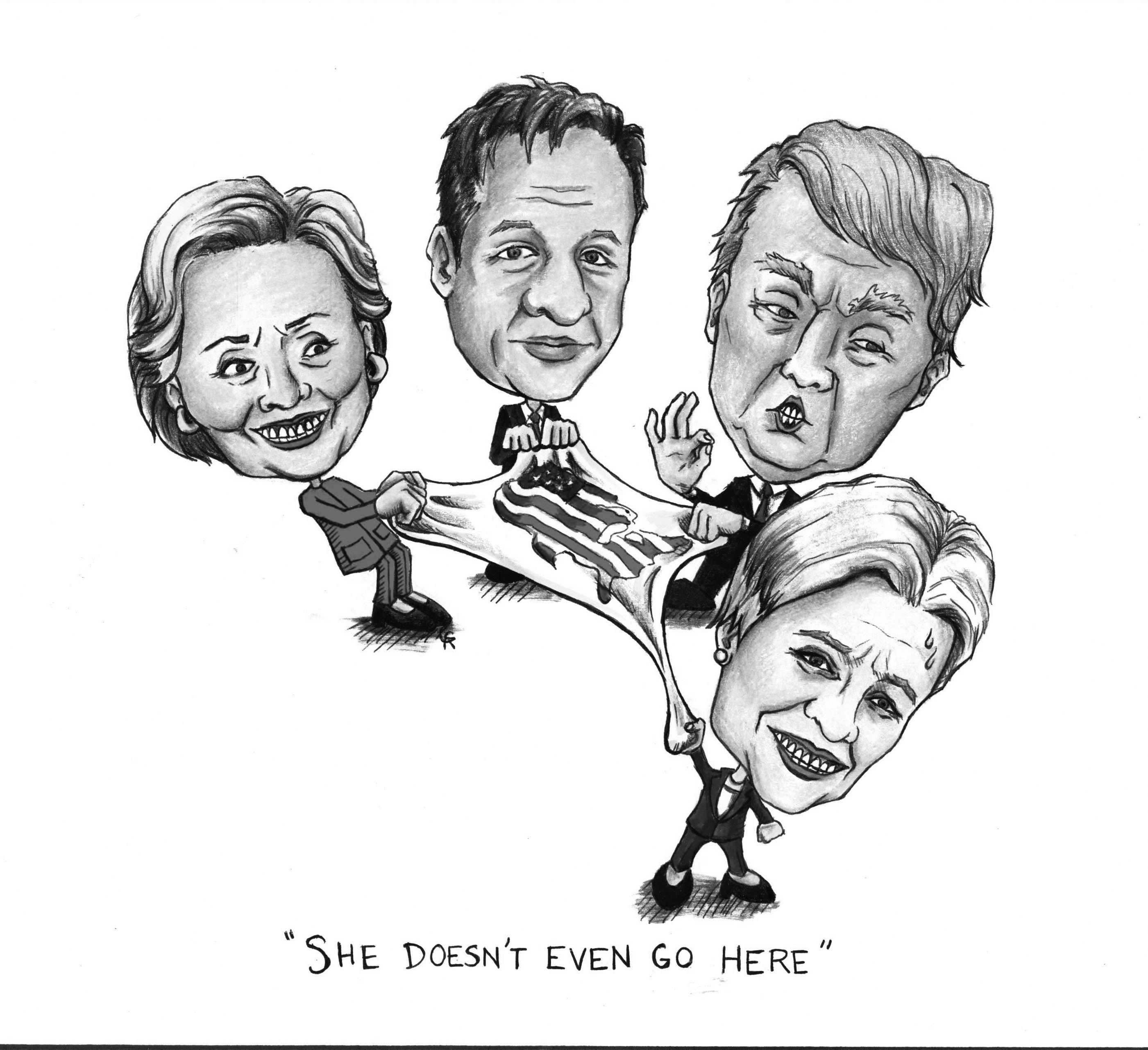
Yale dining workers side with Clinton
UNITE HERE, a labor union representing Yale food, service, maintenance and custodial workers, has endorsed Democratic nominee Hillary Clinton LAW ’73 for president of the United States.
Yale Dining staff interviewed indicated that they supported Clinton and the UNITE HERE endorsement. Some workers declined to speak to the News, citing the sensitive nature of the subject.
Student groups active in 2016 election
Student organizations have played a major role in nurturing political involvement and awareness among fellow Yalies in the lead-up to this year’s election.
Throughout this election season, many groups and publications across campus have hosted speaker series, debates and voter registration events at Yale, as well as in the greater New Haven and Connecticut communities. Some students have also gone to cities as far as Philadelphia to campaign for their candidate of choice. Regardless of political affiliation or inclination, members of Yale’s student groups said their activities have allowed them to provide an avenue for students to express and embrace respective political interests.
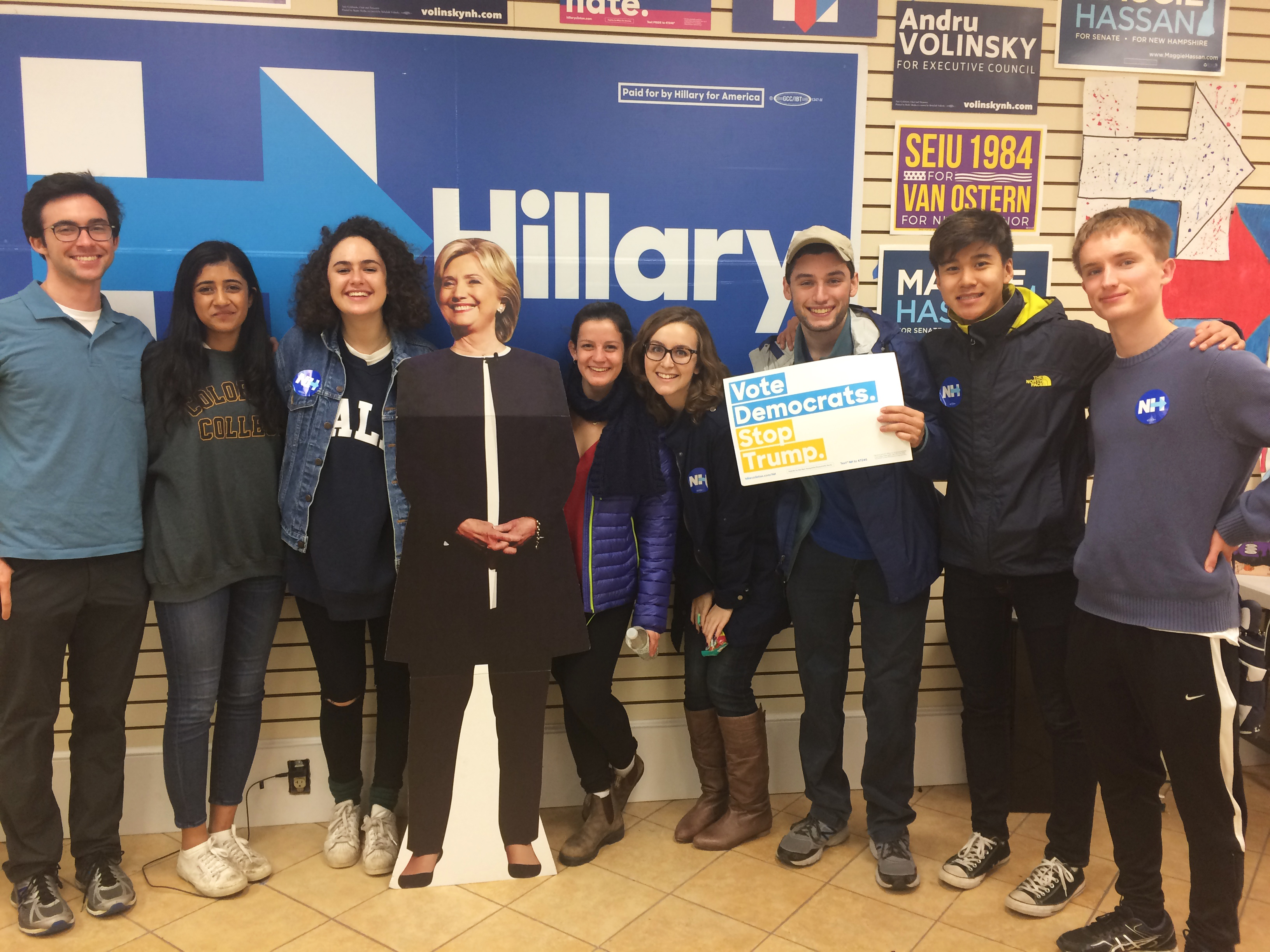
Campus events planned for election night
On election night, Yalies are planning a variety of events, from watch parties to seminars to detox spaces, to celebrate or mourn the results of an unpredictable election cycle.
Tonight, the Yale community will be viewing the results of the 2016 general election in dorm-room screenings and watch parties planned by various political groups, campus publications and cultural centers. There will also be seminars aimed at discussing the results as they unfold, as well as others that will educate students who are less familiar with the election process in the United States.
Elm City residents anticipate election
As polls open Tuesday morning, citizens throughout the Elm City are experiencing mixed emotions about the presidential election.
Residents interviewed in downtown New Haven run the gamut in terms of political engagement: some were undecided, others were apathetic and still more were steadfastly against one candidate or the other. Several people who have voted in all presidential elections for the past 30 years have decided to withhold their vote this year, citing hatred of both major party candidates. Others will enter the voting booth undecided. Yet for some, today’s vote represents an attempt to avoid an internal threat to the United States.
LEWANDOWSKI: For Donald J. Trump
I think most of us can admit that Washington, D.C. is fundamentally broken. We have seen our national debt increase to almost $20 trillion. We continue to see bureaucrats inside the Veterans Administration receive bonuses while our veterans suffer and do not get the care they deserve. Politicians on both sides of the aisle have forgotten about the people they represent and have increasingly become beholden to special interests and big money donors. This must end.
Donald J. Trump has achieved remarkable success in every aspect of his life, whether as a best-selling author, a television personality, a businessman or most importantly as a father and grandfather. Mr. Trump is a winner. He is the big game player that you want to have the ball when you are down by two with 15 seconds in the game.
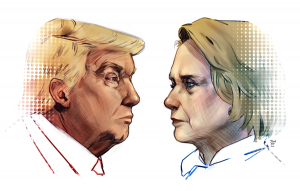
DAVIS: For Hillary Clinton LAW ’73
I first met Hillary at Yale when I was in my third year at Yale Law School in September 1969, and she was an incoming first year. I was standing on line to register for classes, and I turned around and saw her right behind me. I recognized her from her photo in a national news magazine that I had seen the night before about a highly regarded speech she had given at her Wellesley College commencement the previous June. I introduced myself and asked her whether there was any advice I could offer her about Yale Law School — what courses to take, what professors were best, how to read cases and study, etc. Her response: “You could help me — where is the nearest legal services clinic that I could volunteer for?”

